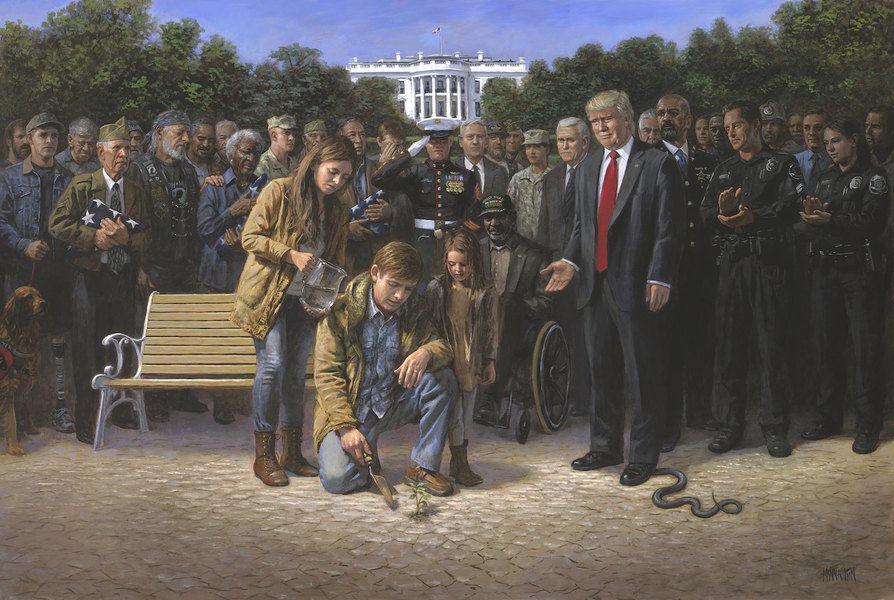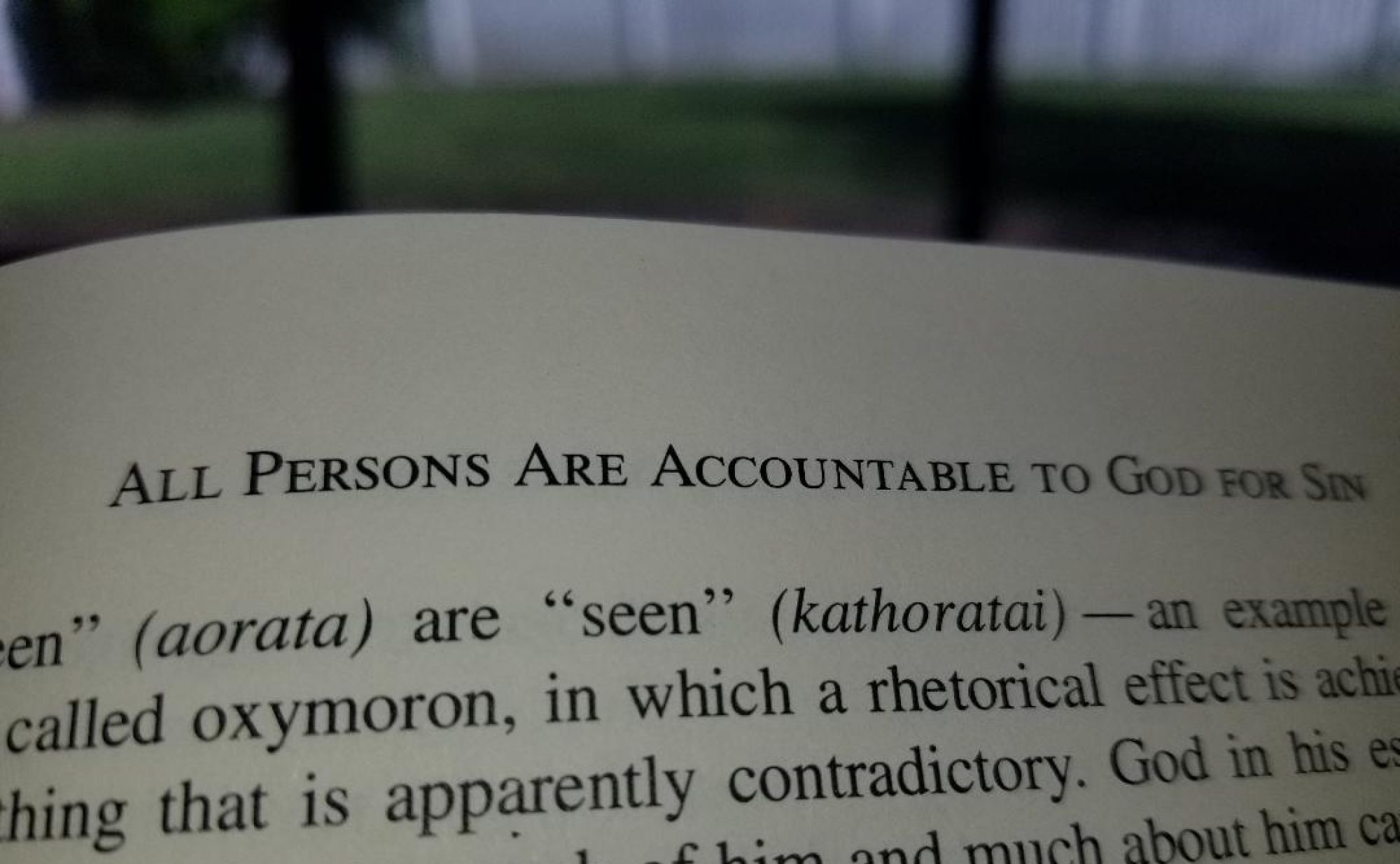
by John Ellis
Yesterday, I saw a clip of pseudo-historian David Barton claiming that the US Constitution is based on God’s words. His point was that only true Christians can govern in ways that allow for the Christian nature of the Constitution to fulfill its purpose. That deserves its own treatment/rebuttal, but for my present purpose it juxtaposed with a conversation I had with a friend yesterday. We discussed how to disciple Believers who are either trapped by Christian nationalism or are sliding into it. I’m afraid that more people in our churches than we realize are tempted by Christian nationalism. Dealing with it now (discipling them) is going to be a whole lot easier than during the next Presidential election season. How can we help them reject that particular idol?
I imagine that there are three main types of readers (obviously, there are likely more): 1. People who agree with me that Christian nationalism is an idol and it’s an idol that’s seeing exponentially more and more Believers openly/cognizantly bow the knee before it. 2. People who disagree with me completely. For them, my accusation that Christian nationalism is an idol is born out of either ignorance on my part or it’s because I’m sold out to the other side (the wrong side, from their perspective). 3. People who agree with me that Christian nationalism is an idol but that I exaggerate the scope of the problem. Part of the challenge created by this group is that I suspect many of them fit somewhere within the second group, but they don’t realize it.
My desire is to answer the question my friend and I asked in a way that has group 1 as its primary audience but that also serves to begin to graciously challenge group 2 (disciple them). Helping group 1 think through how to better disciple people in their churches and lives who are being increasingly interned by Christian nationalism doesn’t have to be one-sidedly pedagogical. As of now, though, and I suspect I may be missing something here – I may be wrong on this point – I’m not sure that some in group 3 (those that are truly in group 3) can be a productive participant, either as speaker or listener. I think a separate conversation is needed with them.
However, it took me awhile to find the willingness to even try to answer the question. Yesterday, as my friend and I talked, I confessed a cynical despair in ever finding an answer to the question. I used the metaphor of a game of pick-up-sticks (a metaphor I use frequently regarding conversations related to our question). How does one gently move one ideological stick without dislodging one of the many others? The related deconstruction process seems too messy to end in a positive conclusion. This is one of the reasons I don’t write very much anymore: I mean, what’s the point? For example, I challenged him by saying, “How could we possibly get people to understand the dynamics at play between the two revolutions that happened in 1776 when most people don’t even know about one of them? Not to mention that pulling out the sometimes-contradictory ideologies and philosophies that not only serve as internal glue for each one but that also bound the two in an uncomfortable marriage of convenience will undoubtedly touch on subjects that will provoke an angry response and dismissal. Across the entire program of Christian nationalism, there’s so much to unpack, both historically and philosophically, as to categorize the question under the heading of “Quixotic.”
My friend kept pushing back, though, refusing to cede ground to my cynicism. The overall conversation and his pushbacks were inescapable for me yesterday evening, last night, and this morning. I had to ask myself, is my resignation a breach of Kingdom ethics?
So, instead of my usual coffee and reading this morning, I had coffee and an internal discussion as I tried to work out a dialectical roadmap to answering the question “how do we disciple Believers trapped by Christian nationalism?”. I think I’ve found an answer – at least a start to finding the answer.
Below is a three-pronged approach to the deconstruction process. The first prong is theological (ontological) and not historical. The second prong is anthropological leading to historical. And it’s not until the third prong that the trickiest, most sensitive issues are looked at.
Obviously, this is a mere scaffolding. Working this out remains a daunting task, and I hope to work it out in subsequent articles. One of the things I like about the three prongs is that an honest reading of each can serve as a gentle ripple that ever so slightly disturbs the idols erected around Christian nationalism.
Prong 1: Their horizon is too temporal. Getting them to honestly explore whether or not they’re living eschatologically is not only the correct starting place, but it also serves to help distance the conversation from an unhelpful political bifurcation from the start.
Prong 2: Their “sources of the self” are prescribed by a particular perspective within that temporality.[1] How they define flourishing comes from somewhere. Where/what is that somewhere?
Prong 3: Their ethics, including economic and political outworking, derive from an existential need to preserve that perspective’s (meta)narrative.[2] We all have a definition of flourishing, whether we’ve articulated it or not. This third prong is where much of the heavy and likely contentious lifting will be. In what ways does your definition of flourishing determine your ethics? For example, this is where a specific rebuttal of David Barton is appropriate.
All of this is just a start, of course, but I pray it’s helpful in beginning to expose at least some of the issues at play.
Soli Deo Gloria
[1] A huge shoutout to Charles Taylor here (really, with the whole thing but I just flat-out stole the title of one of his books – Sources of the Self).
[2] It’s not truly a metanarrative, but that’s a large part of the problem: it ostensibly operates as one.

Prong 3 hits heavy.
If one derives their whole idea of flourishing, or perhaps we could say even “goodness”, from a narrative rooted in man-made structures, such as partisanship, than to ask them to put their politics up against the gospel for guidance is destabilizing. This is the danger we all fall into where worldliness can be rebranded as holiness. For such people as you’ve mentioned, they have convinced themselves that the gospel and their politics are synonymous, when in fact they are not. And thus the lines between holiness and ideological consumption become blurred.
Christian nationalism is a house that looks really good on Facebook marketplace, but upon inspection is built on sinking sand.
LikeLiked by 1 person
Yes. I’m hoping I haven’t bitten off more than I can chew here. At the encouragement of my friend mentioned in this article, I’m trying to steer away from the cynicism I expressed in my article titled “Untitled” (the last one I wrote prior to this one) and work out a way to be edifying and encouraging. Thank you for reading and commenting.
LikeLiked by 1 person